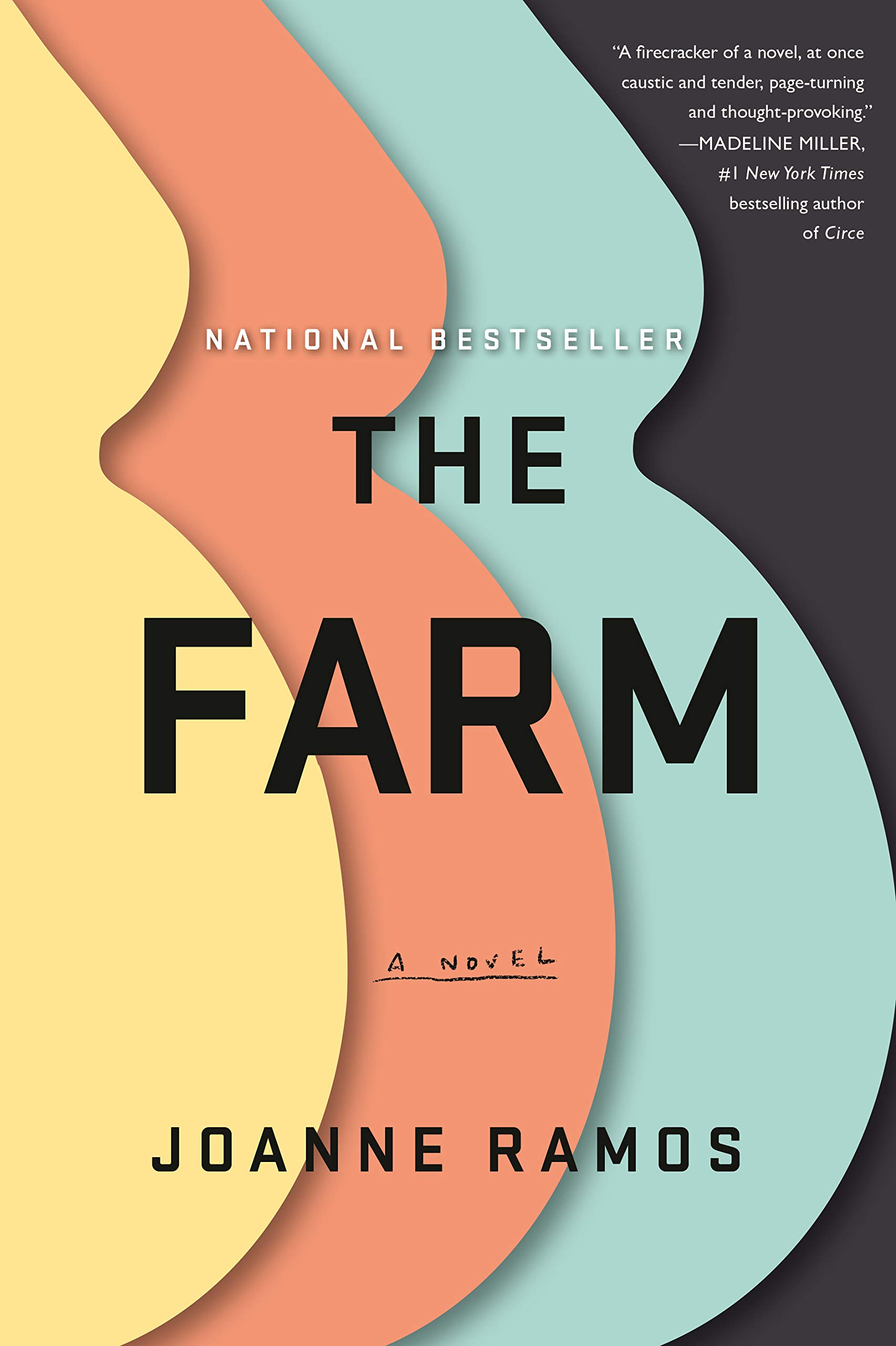A Review of Joanne Ramos’s The Farm (Random House, 2019).
A Review of Joanne Ramos’s The Farm (Random House, 2019).
By Stephen Hong Sohn

So, Joanne Ramos’s The Farm (Random House, 2019) was one of my most anticipated debut reads for 2019. I recall reading a short description of it that made it sound like a speculative fiction, but it’s probably not quite a speculative fiction, which is a little bit alarming. The narrative discourse is brokered among four main characters (for the most part); there’s Ate, who works as a domestic. There’s Jane: a relative of Ate, who has just gotten out of a bad relationship and is trying to make a stable life for her and her newborn daughter Amalia. Later on, there’s a character named Mae, who works at a facility called the Farm. Regan is a character introduced later on, who becomes one of Jane’s friends and who is also at the farm. Let’s let B&N give us further context:
“Nestled in New York’s Hudson Valley is a luxury retreat boasting every amenity: organic meals, personal fitness trainers, daily massages—and all of it for free. In fact, you’re paid big money to stay here—more than you’ve ever dreamed of. The catch? For nine months, you cannot leave the grounds, your movements are monitored, and you are cut off from your former life while you dedicate yourself to the task of producing the perfect baby. For someone else. Jane, an immigrant from the Philippines, is in desperate search of a better future when she commits to being a ‘Host’ at Golden Oaks—or the Farm, as residents call it. But now pregnant, fragile, consumed with worry for her family, Jane is determined to reconnect with her life outside. Yet she cannot leave the Farm or she will lose the life-changing fee she’ll receive on the delivery of her child. Gripping, provocative, heartbreaking, The Farm pushes to the extremes our thinking on motherhood, money, and merit and raises crucial questions about the trade-offs women will make to fortify their futures and the futures of those they love.”
This description makes the novel seem as if it is focused primarily on Jane, which is not entirely true. The tension only works precisely because Ramos takes a lot of care in bringing out the nuances of each character. Despite the flaws that each character definitely possesses, Ramos is careful to carve out the motivations behind their sometimes-questionable decisions. Over the course of the novel, you begin to wonder whether or not Jane or anyone else can really escape the clutches of the Farm, given its extreme surveillance of its hosts. The level of emotional and physical manipulation of these women is harrowing, but the form of human trafficking that Ramos depicts is perhaps not entirely unlike other forms that still occur today. In this way, the novel’s most chilling political critique is in the metaphorical comparison between The Farm and other ways in which women’s reproductive capacities can be outsourced and used as a source of profit/capital. The ending will be sure to split readers. I was unconvinced by the type of reconciliation and alliance that was made in the final pages, but despite my personal feelings about this conclusion, the novel is a stand-out debut.
Buy the Book Here:
https://www.barnesandnoble.com/w/the-farm-joanne-ramos/1129288695#/
Review Author: Stephen Hong Sohn
Review Editor: Nicholas Clark
Web Posting: Xiomara Forbez
If you have any questions or want us to consider your book for review, please don't hesitate to contact us via email!
Prof. Stephen Hong Sohn at sohnucr@gmail.com
Nicholas Clark, PhD Student in English, at nclar004@ucr.edu